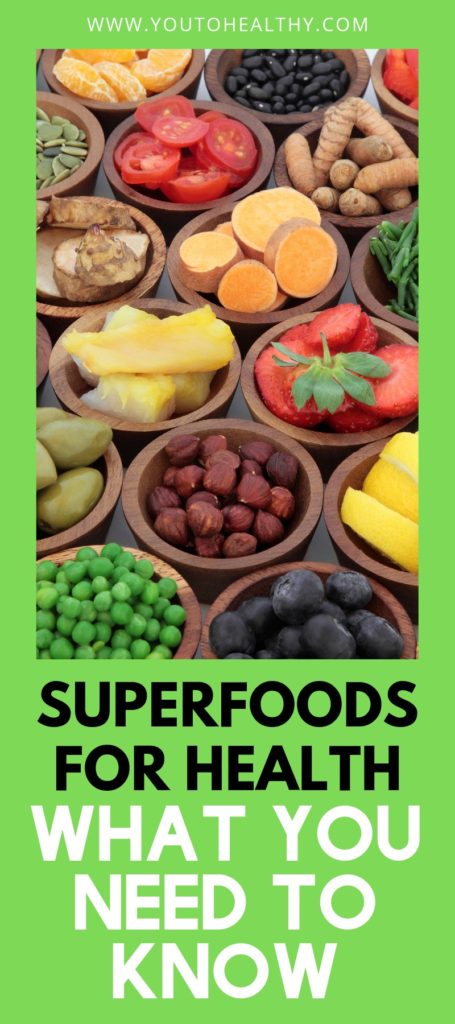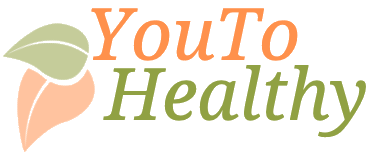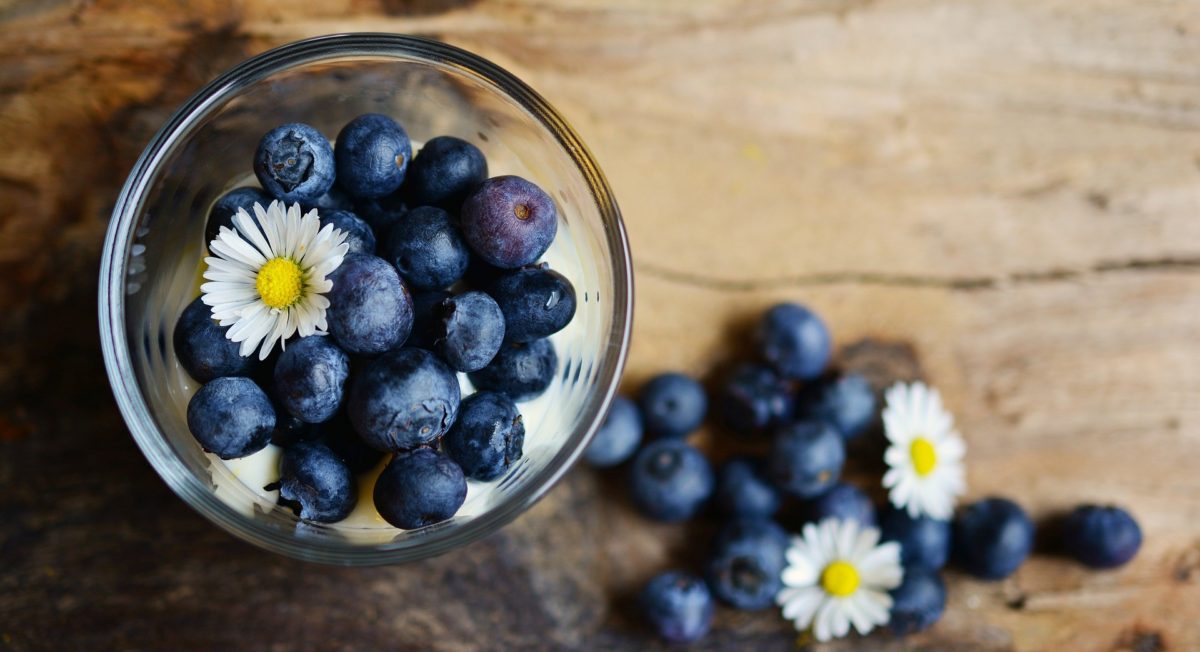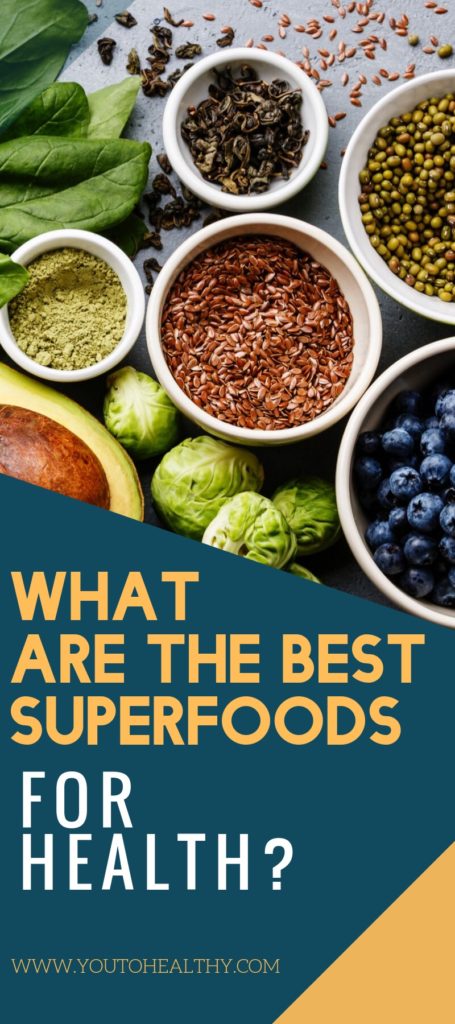The term “superfood” is a buzzword that refers to food items that provide you with quality nutrients. Moreover, some items stand out among others by possessing antioxidants, anticancer elements, and help for healing. These are the best superfoods for health.
Scientifically, there is no single food item that provides all the dietary requirements you need. Eating a variety of foodstuffs like poultry, fish, meats, produce, beans and others help your body get the necessary nutrients from different sources.
Commercially there is a variety of foodstuff marketed as “superfoods”, but we’ll present the top five, based on scientific criteria. The following is a fine collection of superfoods; so, don’t skimp on these items:

Berries:
Acai berry, blueberries, raspberries, blackberries, and cranberries are loaded with fiber, vitamins, and phytochemicals. These compounds may help lower your risk of developing chronic diseases such as Alzheimer’s and Parkinson’s disease.
Acai berries are the fruit from a type of palm tree. They contain a natural anti-inflammatory and antioxidants in abundance. These substances help your body fight stress, enhance memory, and improve its overall cognitive functions. Also incredibly, about two cups of blueberries can protect against DNA damage within one hour.
In addition, they combat aging features and have many other impressive benefits for your health.
Ginger:
This is a superfood with an uncanny ability to help you beat the cold in the winter. Sipping a hot cup of ginger tea provides you with vitamin C, magnesium, and other minerals. You might opt to add peppermint, honey or lemon to veil the sharp, pungent taste of raw ginger.
Ginger is also a cooking spice and a digestion aid that can reduce nausea and gastric upsets.
Ginger possesses antifungal and anti-viral properties. When combined with black seeds, ginger might help you fight common cold and flu viruses.
Owing to its pain-relieving properties, ginger root has the advantage of easing menstrual cramps, joint pain, and muscle aches.
In addition, ginger helps regulate blood pressure, control blood sugar, and prevent heart attacks.
Vitamin D:
Among the cheapest of superfoods for health, vitamin D is probably one of the most vital vitamins. This fat-soluble vitamin has a powerful healing property, as it helps us to absorb calcium. Calcium is of the utmost importance to your skeleton and teeth. It enhances dental growth and supports the healing of broken bones.
Vitamin D is the sunshine vitamin. Deficiency of vitamin D is common during the winter season, especially in elderly, dark-skinned, institutionalized, or hospitalized individuals. Inhabitants of the North Pole where the sun doesn’t shine for several months often show signs of clinical deficiency.
Vitamin D deficiency may manifest in the form of fatigue, bone fragility, and depression. Recent studies have linked some types of cancers to low levels of vitamin D.
Apart from sunlight, vitamin D sources include eggs, dairy, and fatty fish.
Green tea:
There is a sheer volume of evidence supporting the claim that green tea is one of the healthiest beverages on the planet. This claim is supported by the fact that it is packed with antioxidants and nutrients.
Green tea is known for its many benefits, two of which are improving brain function and sedating colon irritability. Studies have shown that green tea lowers the risk of developing breast cancer by 20-30%, prostate cancer by 48%, and colon cancer by 42%. As green tea boosts your metabolic rate and increases the burning of fat, it also improves your physical performance and physique.
One potential downside to green tea is that, if you drink it within two hours after eating, it could keep you from properly absorbing iron.
Nuts:
Nuts are a tasty snack rich in a variety of nutritional elements, as long as they’re not candy-coated or savory. The healthiest are almonds, cashews, peanuts, pistachios, and walnuts.
There are two healthy forms of nuts: oil-roasted nuts and raw nuts. With no great difference, the former has more calories than the latter.
Both possess vitamins (e.g. vitamin E), minerals (e.g. potassium), along with folic acid, fiber, and unsaturated fat.
On the whole, nuts are heart remedies. They help lower cholesterol levels and save the heart major unwanted events. According to the Harvard School of Public Health, eating an ounce of nuts several times a week can protect your heart from abnormal heartbeats and sudden cardiac arrest.
Final Thoughts:
The above tips are good suggestions for healthy superfoods to include in your diet. As a final note, for your health and increased results when consuming superfoods, cut back on sodium, saturated fat, and refined sugar, as well. Happy snacking!





